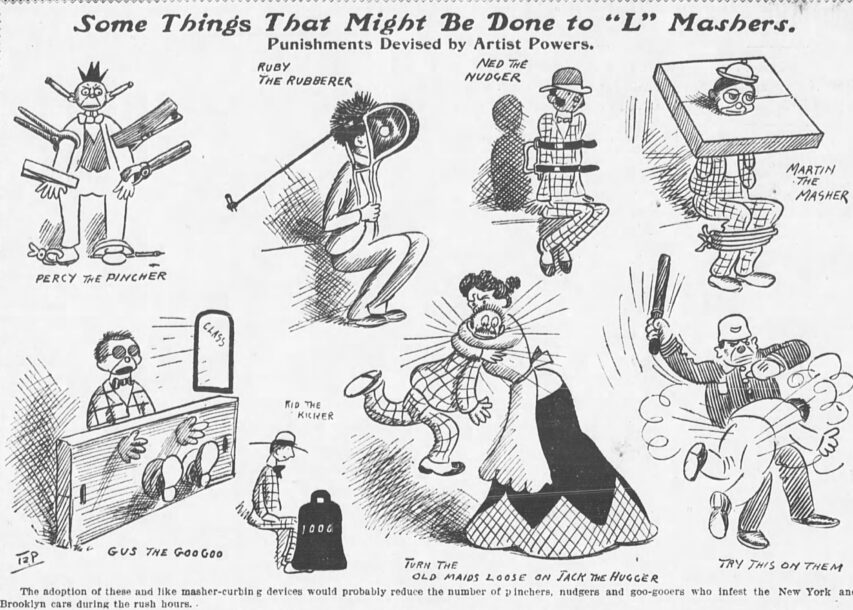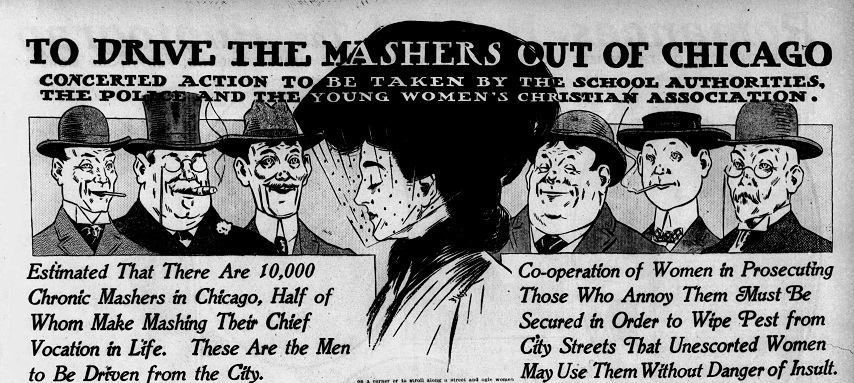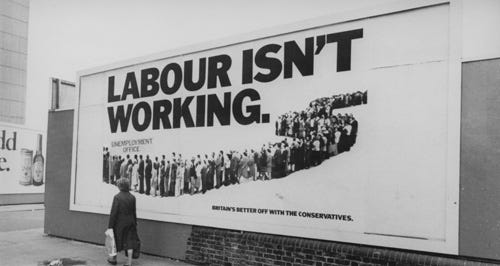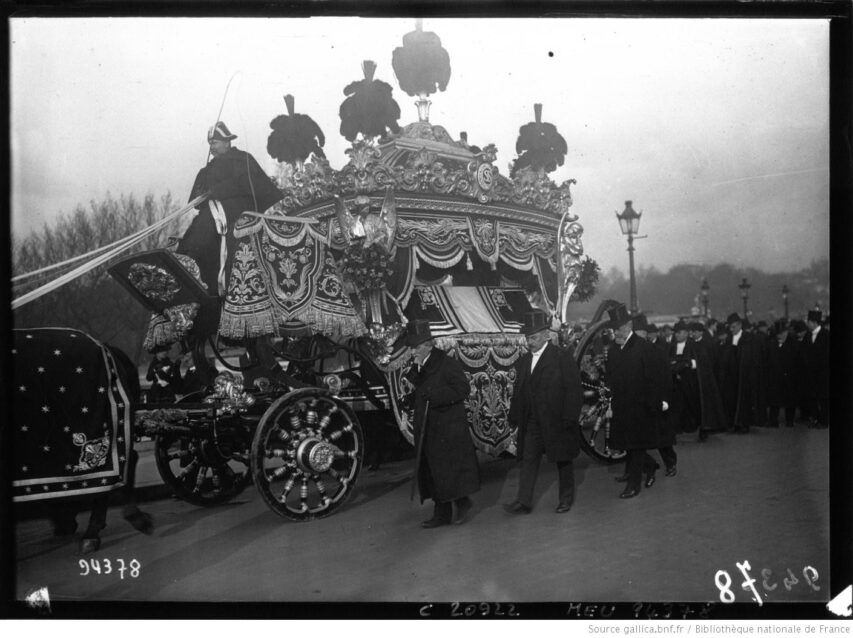Algal the Bard
Published 14 Aug 2022Song composed by Kate Bush.
(more…)
December 13, 2022
QotD: Postwar Germany
Nowhere in the world (except, perhaps, in Israel or Russia) does history weigh as heavily, as palpably, upon ordinary people as in Germany. Sixty years after the end of the Second World War, the disaster of Nazism is still unmistakably and inescapably inscribed upon almost every town and cityscape, in whichever direction you look. The urban environment of Germany, whose towns and cities were once among the most beautiful in the world, second only to Italy’s, is now a wasteland of functional yet discordant modern architecture, soulless and incapable of inspiring anything but a vague existential unease, with a sense of impermanence and unreality that mere prosperity can do nothing to dispel. Well-stocked shops do not supply meaning or purpose. Beauty, at least in its man-made form, has left the land for good; and such remnants of past glories as remain serve only as a constant, nagging reminder of what has been lost, destroyed, utterly and irretrievably smashed up.
Theodore Dalrymple, “The Specters Haunting Dresden”, City Journal, 2005-01.
December 12, 2022
“The reason that Canada’s arts do not resonate with 95% of Canadians is that they are products of socialist realism’
Elizabeth Nickson on the parasitic world of official “Canadian culture” with its gatekeepers, subsidies, and luxury beliefs:
When I say society, I don’t mean the upper reaches of the wealthy. While we do have the very rich in Canada, they are rigorous in their hiddenness because we have the worst lefties on the continent and that is saying something. The safe thing for any wealthy family is give $ to socialists, bow and scrape to the harpies at the CBC and hope they don’t notice your bank balance. Anyway, these dreadful people arrived post WW2 with their hideous Frankfurt School ideas and just preyed on the simplest most innocent well-meaning good white people you could ever imagine, and literally ate, ravenous and braying all the while, the country’s potential.
So the scandal took place among them, or rather the world they created, which is basically a clutch of 150,000 grifters located between Ottawa, Toronto and Quebec City, whose only mission is to divest the government of as much public money as possible. This is particularly true of their defensive line which consists of the arts and journalism. Theirs is a world where no stone is left unsubsidized by taxes on the hidden rich, waitresses at truck stops in Kamloops and anyone who dares to make money unapproved by the CBC. They are, as a former editor swore to me, the gatekeepers. That was before her circulation collapsed by 65%., but no doubt she still believes it.
The arts and media in Canada are constructed entirely for the 5%, consumed by those who live the lush subsidized life — or those who want to — whether in government or in semi-independent corporations or businesses who require government help and “seed” money etc. (There are a hundred terms for the grift.)
Books, if you look at their sales, are tragic. There have been a handful of impressive films, despite the literal billions thrown at filmmakers over the past 20 years. Most of them are catastrophically depressing, the books make you want to cut out your heart with a grapefruit spoon. Painters paint, if you subtract all the hectoring from minor artists, from forced inclusion, some of them are very good. We can create good art. But not with our current curators.
The reason that Canada’s arts do not resonate with 95% of Canadians is that they are products of socialist realism. They describe humans and human life as they either believe it to have been (dark and in need of enlightened beings like themselves) or as they feel it must be in the future (filled with people expressing their oppression and being paid for it). It’s basically fantasy, and no one likes it, watches it, reads it.
The rest of Canada is a centre-right country, a gut-it-out-and-build-it-kind of place. I know that is the exact opposite of the propaganda, but Conservatives win a majority of the votes in every election, yet still only amount to 40%. We have five parties, and four of them are leftie — their platforms are all “more money for us” — but the big party, the one that receives about 30% of the vote is so crafty, so embedded in our vast vast bureaucracy that fixing the game is child’s play. Informed by their Frankfurt School gurus, they have been in power 100 years, with brief Conservative interludes.
We take in about half a million immigrants a year, and most of them are from desperate places. Vote harvesting in those neighborhoods is done by leaders in each immigrant community. These men and women are the strongest, most educated and frankly from the ones I’ve met, thuggish, and through them comes all access to government programs, housing and education. Therefore, when they collect your vote, you know for whom your vote is meant. The thing about immigrants though is that they were coming for the old Canada, not the new Commie police state.
But for now? Easy. No one investigates this. Why not? Our media is subsidized. ALL of it.
The British Empire(s)
At Spiked, James Heartfield discusses the changing attitudes toward British imperial history:
Renewed interest in the history of the British Empire has generated a great amount of fascinating research and reflection. Over the past decade or more, there have been many books written about the empire – popular, academic, polemical and picaresque. There has been Akala’s Natives, William Dalrymple’s The Anarchy, Shashi Tharoor’s Inglorious Empire and Caroline Elkins’ Legacy of Violence, to name just a few.
Today’s approach to the British Empire is invariably critical – often stridently so. It marks a change to the attitude widely held half a century ago, when books on the empire tended to be elegiac farewells, like Paul Scott’s novel, The Jewel in the Crown, or Jan Morris’s Pax Britannica. Today’s critical approach to the empire is certainly a far cry from that which prevailed for a brief moment around the time that Margaret Thatcher was taking back the Falkland Islands. Back then, there was even an attempt at the moral rehabilitation of the empire.
[…]
But there are downsides to the self-excoriating criticism of Britain’s past. Often this approach to history turns into a debilitating exercise in self-loathing, an act of guilt-mongering. Many others have pointed out the limitations of this kind of morbid raking over the coals. But what is just as worrying is that the more we posture over Britain’s colonial past, the less we seem to understand it.
The moralistic framework in which we teach and discuss colonial history reduces our understanding to a single note of complaint. Hence, many historians today now write as if they have to make a case against the empire. This is just kicking at an open door. The empire has very few champions today. And the great British public is certainly not nostalgic for its return, despite some commentators arguing otherwise. Indeed, an ever growing majority think that the empire was a bad thing.
There is another problem with this approach to Britain’s colonial past. It situates readers outside of history. It encourages them to adopt a moralistic rather than historical approach to colonialism. They can do little more than judge the empire as evil. And in doing so, it flattens out the different periods of the colonial project into one long uniform timeline of subjugation. Collapsing distinct periods and stages together leads to a great confusion. For instance, in many accounts, there appears to be little difference between 18th-century British colonialism, which was dominated by slave trading, and the British colonialism of the late 19th century, which was marked by anti-slavery. It is important not to reduce the long history of the empire to a single motivating cause, be it the “English genius” of earlier celebratory accounts or today’s contention that it was all driven by “white supremacy”.
I seek to address these problems in my new book, Britain’s Empires: A History, 1600-2020. There I draw out the differences between the distinctive stages of Britain’s colonial history.
To do this, it is necessary to step back from moral judgement, which foregrounds our attitudes today, in order to try to understand what motivated people back then. That often means looking at a society’s changing social and economic organisation. Britain’s Empires is a history of the empire that holds on to a sense of historical change, and tries to understand the interrelation of its component parts.
The distinct eras of British colonialism are: the Old Colonialism (1600 to 1776); the Empire of Free Trade (1776-1870); the New Colonialism (1870-1945); and the period of decolonisation during the Cold War era (1946-1989). Britain’s Empires ends with an account of the “humanitarian imperialism” of the 1990s up until the present day. This periodisation aims to reflect the objective moments of transition.
The “masher” in US towns and cities
Virginia Postrel wrote an article for the Wall Street Journal on how changes in US retailing in the late 19th century helped women achieve more equal status with men (non-paywalled here). Some interesting parts had to be cut for space reasons, so she’s posted them on her Substack:
As I write in the essay, urban department stores helped to liberate women:
Urban shopping districts were where women claimed the right to dine outside their homes, walk unescorted and take public transportation without loss of reputation. Thousands of female sales clerks flowed out of stores in the evenings, when downtowns had previously been male territory. Department stores provided ladies’ rooms that gave women places to use the toilet and refresh their hair and clothing. They offered female-friendly tearooms. Directly and indirectly, modern shopping enlarged women’s public role.
But as “respectable” women claimed their right to public space, they also attracted unwanted male attention:
It also made sexual harassment a more prominent issue. Men known as “mashers” gathered in shopping districts to ogle and chat up women. Some were no more than well-dressed flirts, violating Victorian norms in ways that few today would find objectionable. Many contented themselves with what an outraged clubwoman termed “merciless glances”. Others followed, catcalled and in some cases fondled women as they strolled between stores, paused to look in windows or waited for trams.
This cartoon from the October 30, 1902 New York Evening World gives some idea of the public outrage toward “mashers”, in this case on streetcars.
Mores were in flux. By old-fashioned standards, everything from a friendly smile or conversation starter to stalking and groping was an insult to a woman’s virtue. Newspapers launched anti-masher crusades and prominent women demanded stricter law enforcement and stern punishment.
“No other feature of city life offers so many opportunities for making life a burden to the woman who for any reason must go about the city alone or with a woman companion,” opined the Chicago Tribune in 1907, leading a crusade against mashers. Outraged society ladies called for hard labor or public flogging as punishment. “Ogling is just as disgusting and offensive to a good woman as any other mode of attack,” declared the president of the Chicago Women’s Club.
When the Chicago police chief suggested that women avoid harassment by staying home and limiting their time in stores, he was roundly denounced by prominent women, business interests and civic leaders. A clergyman declared it “humiliating … that the authorities responsible for the maintenance of public order should feel themselves compelled to refuse the right of the road to any of the city’s citizens.” Americans increasingly assumed that women deserved the same freedom as men to move about in public — a freedom in which retailers and their suppliers had a large economic stake.
But there’s a darker side to the story that didn’t make it into the essay’s published version. The crusade against mashers, while based on a real problem, had a strong element of moral panic.
In Chicago, where the police chief was soon out of office, police won the power to arrest vagrants, including mashers, without warrants and to seek punishment by hard labor rather than fines. Crusading newspapers didn’t give mashers a chance to defend themselves. Nor did they report on the wrongly accused. In the same era that society women were calling for mashers to be publicly whipped, lynching reached its peak — often sparked by the allegation of masher-type offenses that crossed color lines.
Giving police broad powers to arrest men who made shoppers uncomfortable was an extreme solution. (Many women declined to testify in court, so prosecutions were spotty.) It did help to make streets safer for women, but so did a shift in mores that more clearly distinguished between flirtation and assault.
Before the High Power was the FN Grand Rendement
Forgotten Weapons
Published 8 Aug 2022The Browning High Power story begins with a French 1921 request for a new military pistol. FN engineer Dieudonné Saive developed a double stack, single feed magazine and John Browning adapted a Browning 1903 pistol to use it, and this was sent to France for consideration. This pistol worked well enough, but the French trials board requested changes … and they would continue requesting changes and more trials for the next decade.
By 1931, FN felt that the current iteration of the pistol — while still not meeting all the French requirements — was good enough to stand on its own as a service pistol for the Belgian Army and other clients. They named it the “Grand Rendement” (High Efficiency) and began marketing it. The Belgian Army showed a definite interest, and bought 1,000 pistols for field trials, based on the prototype example we have in today’s video. These would become the Grande Puissance, aka the High Power.
For more details on this and other FN Browning pistols, I highly recommend Anthony Vanderlinden’s FN Browning Pistols, soon to be released in its third edition:
QotD: Oversensitivity is not constrained by the mere passage of time
This newspaper lost its editor-in-chief and guiding light to academia a few weeks ago, and we — you know, the talent! — are all still moping. Meanwhile, however, the job is open, and is being publicly advertised. The pay is pretty good, but if you are thinking of applying, you should really be conscious of what a top editor has to deal with these days. BBC News provided a good example on Wednesday, offering a brief account of a controversy at the Teesdale Mercury, a rural paper in princely, scenic County Durham. (The county called Durham in England, that is.)
It seems a reader of the Mercury ran across a brief news item about the suicide of a 16-year-old girl in its pages, and was horrified at the sensational, detailed nature of the report. The story described Dorothy Balchin as being “of a reserved and morbid disposition” and described the romantic disappointment — a beau’s emigration to Australia — that preceded her suicide. The newspaper noted that a photograph of her boyfriend was found immediately below her hanged body, and even printed the text of two notes she left. In other words, the news copy broke every rule that newspapers now normally observe in mentioning suicide.
But of course no one had thought of any of those rules in the year 1912.
Which is when the story had appeared in the Mercury.
Which didn’t stop some reader from complaining to the paper in the year 2019.
Colby Cosh, “Want a newspaper job? Dream of making films? Be careful what you wish for”, National Post, 2019-05-09.
December 11, 2022
Apparently building a new coal mine ranks as a “crime against humanity”
Brendan O’Neill in Spiked on the latest peak in climate hysteria (although it’s tough to bet against hysterics finding an even higher peak to climb):
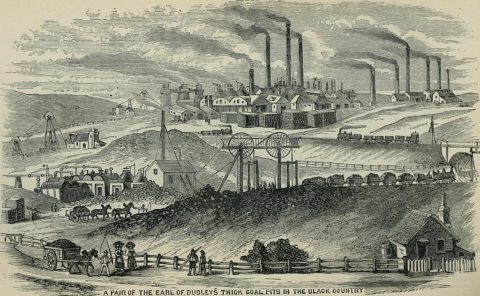
An image of coal pits in the Black Country from Griffiths’ Guide to the iron trade of Great Britain, 1873.
Image digitized by the Robarts Library of the University of Toronto via Wikimedia Commons.
The madness of the greens is peaking. This week a leading eco-politician in the UK, Caroline Lucas of the Green Party, referred to the building of a new coalmine as a “crime against humanity”. Take that in. Once upon a time it was mass murder, extermination, enslavement and the forced deportation of a people that were considered crimes against humanity. Now the building of a mine in Cumbria in north-west England that will create 500 new jobs and produce 2.8million tonnes of coal a year is referred to in such terms. Perhaps the coalmine bosses should be packed off to The Hague. Maybe the men who’ll dig the coal should be forced alongside the likes of ISIS to account for their genocidal behaviour.
We cannot let Ms Lucas’s crazed comments just slide by. We need to reflect on how we arrived at a situation where a mainstream politician, one feted by the media establishment, can liken digging for coal to crimes of extermination. It was in the Guardian – where else? – that Ms Lucas made her feverish claims. On Wednesday, when the government gave the go-ahead to the Cumbria mine, the first new coalmine in Britain for 30 years, Lucas wrote that the whole thing is “truly terrible”. This “climate-busting, backward-looking coalmine” is nothing short of a “climate crime against humanity”, she said.
It isn’t though, is it? Sorry to be pedantic but it is not a crime to extract coal from the earth. If it were, the leaders of China – where they produce 13million tonnes of coal a day, rather putting into perspective the Cumbria mine’s 2.8million tonnes a year – would be languishing in the clink. I look forward to Ms Lucas performing a citizen’s arrest on Xi Jinping. It certainly is not a crime against humanity. That term entered popular usage during the Nuremberg trials of the Nazis. It refers to an act of evil of such enormity that it can be seen as an assault on all of humankind. Earth to Ms Lucas: extracting coal to make steel – what the Cumbria coal will mostly be used for – is not an affront to humankind. I’ll tell you what is an affront, though: speaking about the burning of coal in the same language that is used to refer to the burning of human beings. That, Caroline, is despicable.
The overwrought apocalypticism of the likes of Ms Lucas does two bad things. First, it demonises in the most hysterical fashion perfectly normal and in fact good endeavours. The Cumbria coalmine will create hundreds of well-paid jobs. It will increase the independence and dignity of working-class families in Cumbria. It will help to reduce the UK’s reliance on coal imports. These are positives. They should be celebrated. Of course to Ms Lucas and other middle-class greens, that local communities in Cumbria have welcomed the coalmine only shows that they’re “nostalgic” for the past and that they’ve been “seduced” by a plan that will actually make them “suffer”. Patronising much? The Cumbrian working classes who can’t wait to start mining are a paragon of reason in comparison with the Guardianistas madly sobbing about coal being a crime against humanity.
An Amphibious Landing to take Rome? – 224 – December 10, 1943
World War Two
Published 10 Dec 2022There are plans afoot to hit the enemy from behind in Italy. Allied leaders are meeting again in Cairo to go over other plans, notably what to do about China and Burma. There is active fighting on two fronts in Italy too, though this week it doesn’t go particularly well for the Allies. Attacks in the USSR are unsuccessful for the Soviets, but do go well for the Germans, and there are Allied attacks by air in the Marshall Islands and over France.
(more…)
Winter of Discontent 2, non-electric boogaloo?
Matt Goodwin sets the stage for Britain’s potential re-run of the “Winter of Discontent”. By chance, I happened to be in England for a few weeks smack-dab in the middle of the worst of that winter, so although I was not following the news at the time, the physical and emotional state of the country struck me very deeply. There certainly are strong similarities between late 1970s Britain and post-pandemic Britain:
Britain is entering a Winter of Discontent. If you are in the country and plan to take a train, a bus, a flight, a driving test, travel on the highway, send a letter, have a beer, go to school or university, need an ambulance to take you to hospital, need a nurse to look after you while you are in hospital or want to buy a coffin in case things do not go so well while you are in hospital then there is more than a good chance you will be caught up in a wave of strikes that are sweeping across the country.
More than one million working days are about to be lost due to strike action, the largest number since 1989. This is nowhere near the twelve million days that were lost in the original Winter of Discontent, in 1978-9, or the 126 million days lost during the general strike in 1926. But it is more than enough to cause yet another problem for Rishi Sunak and the faltering Conservative Party he is struggling to turn around.
As I pointed out in the Sunday Times last week, while Sunak has stabilised his party it remains deeply unpopular in the country. Even before this winter, voters blame the Tories far more than global events for Britain’s deteriorating economy. One legacy of Partygate and the disastrous experiment with Trussonomics is that Sunak has inherited a party that is now seen by much of the electorate as untrustworthy, serving its own interests, in the hands of a narrow elite and out of touch. Today, not even one in ten voters think the Conservatives “care about ordinary people”.
What options does Sunak have? While he and his team will be tempted to recycle the Thatcher playbook from the original Winter of Discontent, blaming the unions for the strikes and trying to appeal to national unity, this time things are more complicated. For a start, large numbers of voters actually support the strikes, which reduces Sunak’s room for manoeuvre. Second, this time it is the Conservatives not Labour who are in power, and are being blamed just as much as the unions for the unfolding chaos. Every train that is missed, every flight that is cancelled, every hospital patient that is not looked after will entrench the party’s negative image. And, third, as I said during an after dinner talk to clients of a major law firm this week, irrespective of what happens in the weeks ahead research on the impact of major strikes tells a consistent story: they hurt incumbent governments, lowering their support at the next election.
In fact, this might explain why the Rishi recovery already appears to be running out of steam. As I pointed out on Twitter this week, since taking over Sunak has certainly managed to increase his party’s average share of the vote from 23 to 27 per cent while Labour’s average lead in the polls has dropped from thirty to twenty points. And when voters are asked who would make the “best prime minister”, Sunak is much closer to Starmer, trailing him by only 5-points, than Liz Truss ever was, who trailed him by 29-points. But the Conservatives remain a long, long way behind. Just how far behind was underlined by a by-election in Chester this week which saw the party’s vote crash by sixteen points. The last time this happened at a by-election in a Labour-held seat was in the 1990s, shortly before the Blair asteroid almost rendered the Tories extinct.
At a deeper level, however, this winter also looks set to entrench a much deeper mood among the British people which will also undermine the government. The strikes, the chaos, the mounting sense of crisis are all feeding a palpable feeling among voters that nothing really works in Britain anymore, that contrary to the populist mantra of the last decade nobody is in control.
How to Make A Christmas Cake – The Victorian Way
English Heritage
Published 30 Nov 2017Christmas is approaching so Mrs Crocombe is making a cake for Lord and Lady Braybrooke at Audley End House.
This traditional plum cake is based on a recipe by Charles Francatelli, who was Queen Victoria’s chief cook from 1840 to 1841.
(more…)
QotD: Democracy
… “democracy” seems to generate a unique kind of idiocy. This too is no unique insight — William F. Buckley meant the same thing when he said he’d rather be ruled by the first 2000 names in the Boston phone book than by the faculty of Harvard — but like all obvious things about human nature it’s lethally easy to forget. A politician in a “democracy” is an unholy mix of circus performer and whore. Somehow convinced that the audience’s applause comes from its appreciation of her own superior virtue, not rude biology, she slips further and further into narcissism, never bothering to wonder why, if the house is packed to the rafters every night, she’s still sleeping three to a room while the circus owner has a mansion and rides around in a limo.
Democracy’s founding fictions reinforce this. It’s easy to see yourself as the People’s Tribune, I imagine, if you just look at the numbers. All those people voted for you, which confirms how wonderful you are!
A better analogy is the professional sports team. Lots of people wear the team apparel of the Los Angeles Chargers. You can find lots of online forums passionately devoted to them. Lots of L.A.-area bars are festooned with Chargers’ stuff. The bobbleheads at ESPN talk about the Chargers several times a day. And yet, come game time, the Chargers only get about 32,000 fans at the stadium. Those are the actual voters — the rest is just social media noise. And it’s worse than that, actually. We all know that the vast majority of people who picked up a Chargers’ shirt because it was in the clearance bin, or ordered a drink at a bar with Chargers’ memorabilia on the shelf, would never bother to attend a game. So even people who think of themselves as “Democrats” or “Republicans” barely bother to vote, much less follow “their” team in office. Even the groups that get pandered to the most — old people, veterans, union goofs — don’t turn out in proportionate numbers.
Come election day, the People’s Tribunes are decided by old cranks on loan from the home, a few office drones on their lunch break with nothing better to do, and homeless people lured in with a promise of a short dog and some change.
But since no one without a vast, yawning chasm in her soul would ever submit herself to the indignities of “democracy” in the first place, these newly “elected” fools hie themselves to Washington, where the money boys feed their self-delusion. They read about themselves in the newspapers, see their names on internal party polls, and since none of their “constituents” could pick them out of a police lineup, they learn that the only way to keep the applause coming is by doing what the newspapers and the money boys say.
Severian, “Impeachment Thoughts”, Rotten Chestnuts, 2019-12-19.
December 10, 2022
United States Empire – The Spanish-American War
The Great War
Published 9 Dec 2022The Spanish-American War (fought in Cuba and the Philippines) kickstarted US global ambitions and expanded their influence far beyond the borders of the United States. At the same time the war marked the endpoint of the decline of Spain as a global power.
(more…)
Ed West finds nice-ish things to say about the French
It’s actually part two, which I’m sure would astonish many a Brit:

The Royal Standard of the King of France (and by default, the national flag), used between 1638 and 1790.
Wikimedia Commons.
“When, after their victory at Salamis, the generals of the various Greek states voted the prizes for distinguished individual merit, each assigned the first place of excellence to himself, but they all concurred in giving their second votes to Themistocles,” wrote the great 19th-century historian Edward Creasy. “This was looked on as a decisive proof that Themistocles ought to be ranked first of all. If we were to endeavour, by a similar test, to ascertain which European nation has contributed the most to the progress of European civilization, we should find Italy, Germany, England, and Spain, each claiming the first degree, but each also naming France as clearly next in merit. It is impossible to deny her paramount importance in history.”
France is central to the story of Europe, and indeed of Britain. It is almost impossible to understand England’s history without appreciating the relationship with its closest continental neighbour. It is a love-hate affair originating in a grand inferiority complex, a long rivalry that continues tomorrow [Saturday] when England meet France in the World Cup quarter-finals.
In a piece last year I cited some of the most endearing/maddening things about the French, all of which contributed to a sense of amused frustration on our part:
Only in France would football fans protest that a local restaurant had lost a Michelin Star, as happened in Lyon two years ago. Only in France would an expedition to the Himalayas — of huge national importance — fail because it was weighed down by eight tonnes of supplies, including 36 bottles of champagne and “countless” tins of foie gras. And only in France would you get actual wine terrorists, the Comité Régional d’Action Viticole, who have bombed shops, wineries and other things responsible for importing foreign produce. This is a country which only reluctantly in the 1950s stopped giving school children a nutritious drink for their health, by which the French meant not milk but cider.
This is a country where mistresses are so much part of life that they can legally inherit, and where murder doesn’t really count if it’s done for love. One of France’s most famous socialites, Henriette Caillaux, shot dead the editor of Le Figaro just before the First World War and received just four months in jail because it was a crime passionnel. So that’s all right then.
But there are so many other things to love about our strange neighbours …
The Anglo-French relationship is a difficult one, reflected in the troubled history of royal marriages. Charles I’s Catholic wife Henrietta Maria was a drag on his popularity among excitable Protestant radicals, and turned out to be the last French consort; in the 14th century Edward II’s wife Isabella overthrew him and, perhaps, conspired to have him killed, after a rocky marriage that began badly when he brought his lover to the coronation and acted inappropriately affectionate towards him. But then, as Edith Cresson pointed out, this is to be expected when you marry an Englishman.
In 1514 Louis XII married an English bride, Henry VIII’s sister Mary; she was 18, he was 53, and had syphilis, so she must have been delighted about the whole thing; however, within weeks she had “danced him to death”, the sex apparently proving too exciting for his nervous system. Francesco Vettori, Florence’s ambassador to Rome, wrote that King Louis had a lady “so young, so beautiful and so swift that she had ridden him right out of the world”.
***
Perhaps not a terrible way for a Frenchman to go, and not the last French head of state to die in a similar manner. President Félix Faure expired in 1899 while with his mistress, after which his funeral featured this very understated carriage.
***
Numerous French presidents have had affairs, although Francois Mitterrand actually had a secret second family while in the Élysée Palace. Mitterrand’s last meal was also ultra-French: “He’d eaten oysters and foie gras and capon — all in copious quantities — the succulent, tender, sweet tastes flooding his parched mouth. And then there was the meal’s ultimate course: a small, yellow-throated songbird that was illegal to eat. Rare and seductive, the bird — ortolan — supposedly represented the French soul. And this old man, this ravenous president, had taken it whole — wings, feet, liver, heart. Swallowed it, bones and all. Consumed it beneath a white cloth so that God Himself couldn’t witness the barbaric act.”
***
The French are world outliers in their attitudes to adultery, the only country where a majority of people think it’s fine. Germany is number two in this index of permissiveness while the Americans, of course, are the most disapproving western nation.



